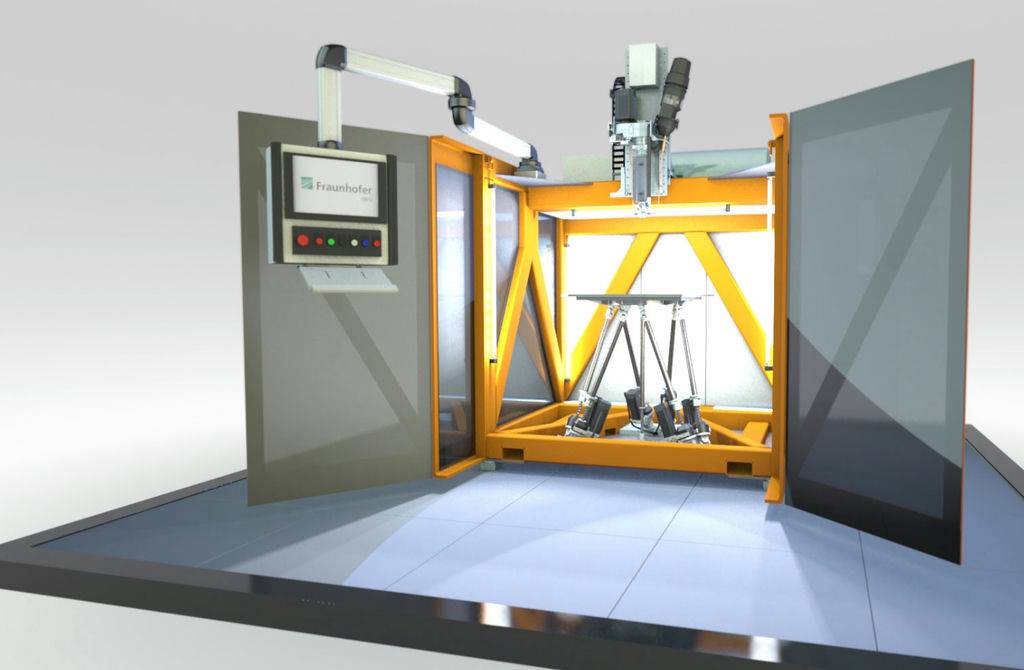Researchers at the Fraunhofer Institute for Machine Tools and Forming Technology IWU in Chemnitz, Germany have developed Screw Extrusion Additive Manufacturing (SEAM), a system that is eight times faster than conventional 3D printing.
According to researchers, the SEAM system takes only 18 minutes to produce a plastic component 30 centimeters in height, while some FFF 3D printers can take up to an hour to produce a pocket-sized souvenir. The process achieves this production speed by combining 3D printing with machine tool technology. To process the plastic, the researchers use a specially designed unit that melts the raw material and ejects it at a high output rate. This unit is installed above a construction platform capable of swiveling in six axes.
“This enables us to print eight times faster than conventional processes, enormously reducing the production times for plastic components,” said Dr. Martin Kausch, a scientist at Fraunhofer IWU.

This experimental component is a hybrid of CFRP sheet metal and 3D printed structures – SEAM makes it possible to print on injection-molded components or sheet metal for the first time. ©Fraunhofer IWU
The hot plastic is deposited in layers on the construction platform. The motion system of the machine ensures that the construction panel slides along under the nozzle in such a way that the previously programmed component shape is produced. The construction platform can be moved at a speed of one meter per second in the X-, Y- and Z-axes and can also be tilted by up to 45 degrees. “This enables us to print eight times faster than conventional processes, enormously reducing the production times for plastic components,” said Dr. Kausch.
Furthermore, SEAM allows researchers to implement complex geometries without supporting structures. The swiveling platform enables the ability to 3D print on existing injection-molded components. “As our construction platform can be swiveled, we are able to print on curved structures with a separately moving Z-axis,” says Kausch.
“In tests, we were able to process a wide variety of plastics,” He explained. “They ranged from thermoplastic elastomers to high-performance plastics with a 50% content of carbon fiber. These plastics are materials that are particularly relevant to industry and cannot be processed with traditional 3D printers.”
The first SEAM ultrafast 3D printer will be demonstrated at the Fraunhofer Booth C22 in Hall 2 during the Hannover Messe from April 1 through 5, 2019.
Source: 3ders.org


